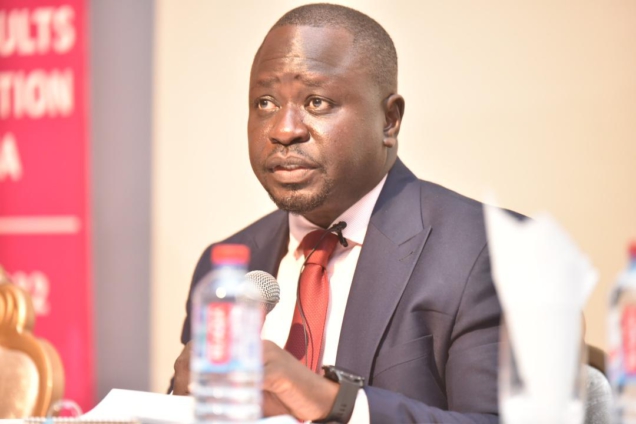The Ghana Statistical Service (GSS) has expressed reservations about the government's Agenda 111 initiative, citing concerns about the locations and accessibility of healthcare facilities nationwide.
According to findings from the 2022 Demographic and Health Survey (DHS) Report, which surveyed 618 clusters across 261 administrative districts, a significant 40% of Ghanaian women aged 15 to 49 face travel times exceeding 30 minutes to 2 hours for healthcare access.
Government Statistician Prof. Kobina Anim stressed the need for urgent action to address this issue and prevent potential challenges in the future.
He made this known during the presentation of the said report on Thursday, January 18.
“We identify that about 2/5 that is in excess of 40% of women aged 15 to 49 years were travelling in excess of 30 minutes to access the nearest health facility.
“This puts into context the government’s intervention of Agenda 111 where it is being situated and the extent it is going to affect the fact that we have people traveling in excess of 30 minutes, specifically 40% of people traveling in excess of 30 minutes to access the nearest health facility.
“Of importance to us is the disaggregation across the 16 administrative regions.”
“And from the perspective of those travelling more than two hours to access the nearest health facility where we identify the Oti region as having more than 10% of women aged 15 to 49 years travelling over two hours to access the nearest facility. The range is from 0.8 in the Eastern region to 11.6%.
“This is where the conversation around the situation of Agenda 111 should be reflected. As in is it dominant in these places where we see a lot more people travelling over two hours to access a health facility,” he said.
Meanwhile, the Director-General of the Ghana Health Service, Dr. Patrick Kuma Aboagye, affirmed his dedication to addressing the disparities within the health sector.
“While some targets have been met nationally, it is a concern that several regions fall short, showing substantial regional disparities for almost all indicators including skill delivery, and percentage of children without vaccinations.
“In the face of these challenges, our service commits to providing strong leadership and clear guidance to ensure coordination among multiple partners of the sector.”
“I must say that the regional disparities also shore gross disparity among the newly created regions which we see also and that is why GHS moved in there very early to ensure that we can focus on these deprived areas. And we are hoping that the next DHS will show better results in these areas.
“So we pledge to deliver high-quality services at both the facility and community levels, but we will require the support of our media and the entire population to ensure that this is done,” he said.
Latest Stories
-
Dr Bawumia had no choice given Mahama’s decisive victory – Malik Basintale
45 seconds -
ORAL: ‘Clergy were misled by Akufo-Addo’ – Ablakwa on National Cathedral scandal
5 minutes -
‘It is false’- PMMC refutes claims of politicians smuggling gold from Ghana
23 minutes -
2 million NPP supporters did not turn up to vote – Kabiru Mahama
26 minutes -
IPR Ghana congratulates citizens for peaceful election, calls for unity
1 hour -
Bawumia’s 8 minutes elite ball that zapped the energy of trigger happy politicians
2 hours -
It will be a betrayal if National Cathedral saga does not feature in ORAL’s work – Ablakwa
2 hours -
‘It’s unfortunate we had to protect the public purse from Akufo-Addo’ – Ablakwa on ORAL Team’s mission
3 hours -
Congo lawyers say Apple’s supply chain statement must be verified
3 hours -
Stampede in southwestern Nigerian city causes multiple deaths
4 hours -
Tens of thousands without water in Mayotte as curfew brought in
4 hours -
ORAL: We won’t witch-hunt, we’ll focus on transparency, not revenge – Ablakwa
4 hours -
Attempted robbery: Accused claims he carried cutlass for protection
4 hours -
Excavator operator jailed for stealing
5 hours -
African fans age-shame me for putting on some outfits – Tiwa Savage
5 hours

